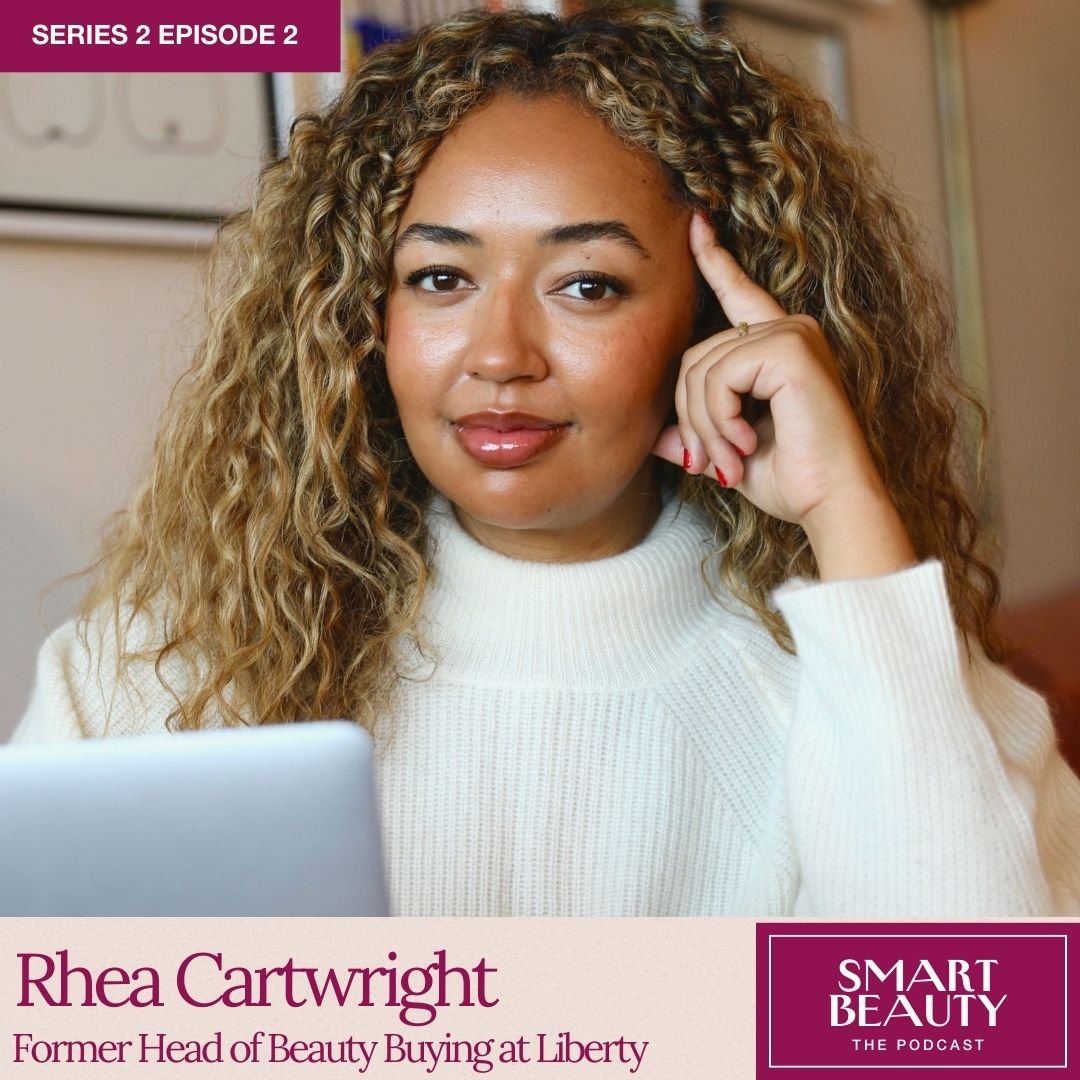Behind the Scenes with Rhea Cartwright: The Secrets to Winning Over Beauty Buyers
We recently had the pleasure of hosting the incredible Rhea Cartwright on the Smart Beauty Podcast, where she shared invaluable insights from her time as Head of Beauty Buying at Liberty. In part two of our conversation, Rhea delved into what it truly takes to stand out in a fiercely competitive market – and spoiler alert: storytelling plays a major role.
Rhea also revealed the most effective ways to get your products noticed by beauty buyers like herself. If you’ve been dreaming of securing a retail partnership, her advice is not to be missed. And if you haven’t already caught part one of our chat, we recommend starting there for the full picture.
Here’s a closer look at the highlights from our conversation and the key takeaways for beauty entrepreneurs.
The Path to Liberty
When asked how her non-traditional career route shaped her approach to beauty buying, Rhea was candid about the challenges. She shared, “There’s a huge technical side to being a beauty buyer that, unless you’ve done it, you just don’t realise. Even the systems used are complex, but luckily my boss told me, ‘You don’t need to learn them – just ask someone to run the reports.’ Thank goodness!”
However, when it came to selecting brands to stock, Rhea’s criteria were deeply personal: “Quite honestly, it wasn’t any different to how I’d choose products for myself or for an editorial feature. The product had to feel new, fresh, or exciting. I’m not interested in seeing things that feel like a copy of what’s already out there.
“I often hear people say they’re launching a brand with sustainability as a core pillar, but when you look at the product, it’s just a rehash of something else. Sometimes, the most sustainable thing would’ve been not to launch the brand at all!”
Founders Matter
For Rhea, the founder behind the brand plays a pivotal role. “In the same way investors prioritise the team over the product, I placed great importance on the founder. Particularly for indie brands where we were often their first or second retailer – like Mirror Water or Rome – I needed to believe in them.
“We were investing time, energy, and resources into these brands, so I had to feel confident they’d stick it out through the inevitable highs and lows. A great founder is one who can weather those storms, not just for their brand but alongside their retail partners.”
The Power of Storytelling
Rhea stressed that the brands that truly succeed are often not those with the best products, but those with the strongest storytelling. “Whether it’s through copy, visuals, or community building, storytelling is the key to standing out. Why should a customer switch to your face cream after using one for 10 years, possibly passed down as a ritual from her mother? The answer lies in your story.
“Of course, creating these stories requires investment, and unfortunately, that creates an uneven playing field. But for brands with limited resources, leaning into their identity as underdogs can be just as powerful. People love a triumph-over-adversity narrative, so embracing that can really resonate.”
Supporting Indie Brands
Post-COVID, there’s been a growing appetite for supporting independent businesses. But Rhea explained that it doesn’t always translate to beauty. “People buy beauty products to look and feel better. If your product isn’t as effective as a mainstream alternative, it’s unlikely to succeed – no matter how great your story is.
“That said, the human element is incredibly powerful. Founder-led brands with authentic stories stand out because they remind us there are people behind the products. It’s far more engaging than a faceless corporation.”
Should Founders Be Front and Centre?
Not all founders want to be the face of their brand, and Rhea reassures them that it’s not essential. “I hear this all the time: ‘I want to launch a brand, but I don’t want to be front and centre.’ That’s fine. There are plenty of massive brands whose founders you’d never recognise.
“The key is being clever with your storytelling. You can still create an emotional connection with your audience without putting yourself in the spotlight.”
However, Rhea warns that being too front-facing can backfire: “I know a brand where the founder is so visible it’s actually off-putting. Not everyone will love your brand – or you – and that’s okay. Even Beyoncé and Taylor Swift have their critics!”
Final Takeaways
Rhea’s insights serve as a masterclass for aspiring beauty entrepreneurs:
Stand Out: Offer something truly fresh and exciting.
Be Authentic: Lean into your unique story, whether as a founder or a brand.
Think Long-Term: Build partnerships that can weather the inevitable storms.
The beauty industry is as much about psychology as it is about products. Whether it’s nostalgia, human connection, or a compelling narrative, the story behind the brand often makes all the difference.
Catch the full episode of the Smart Beauty Podcast for even more invaluable advice from Rhea Cartwright!

